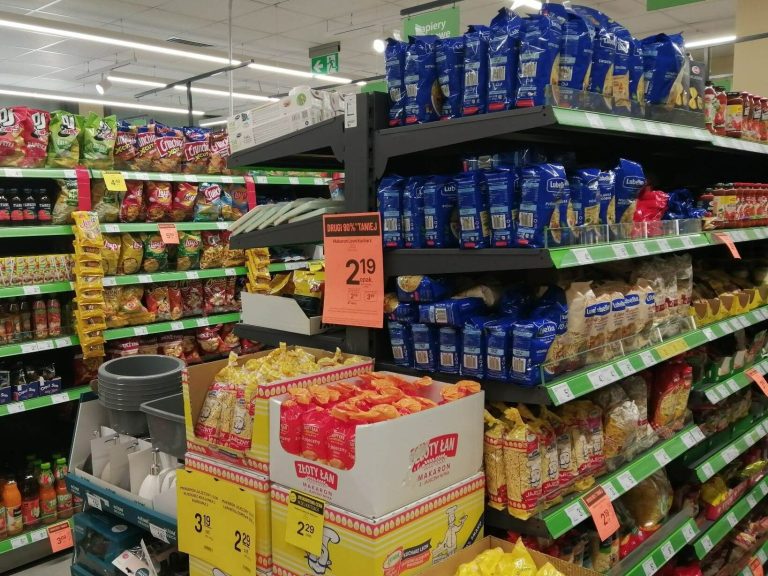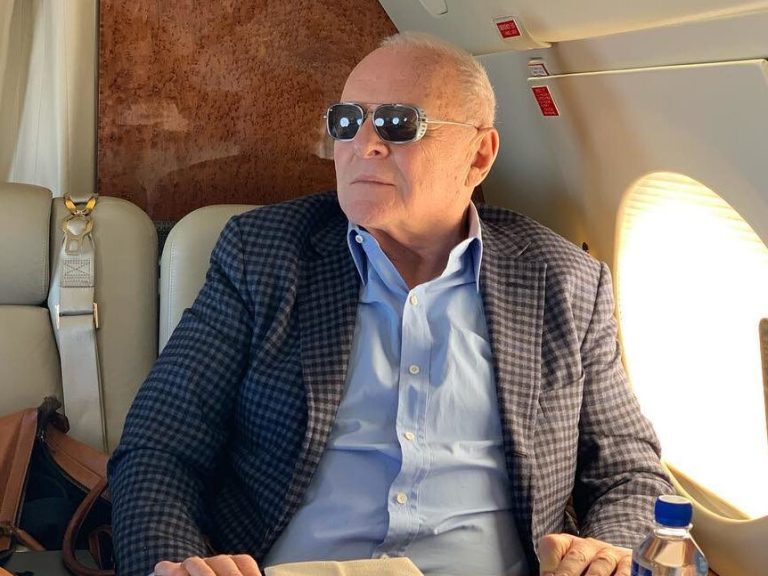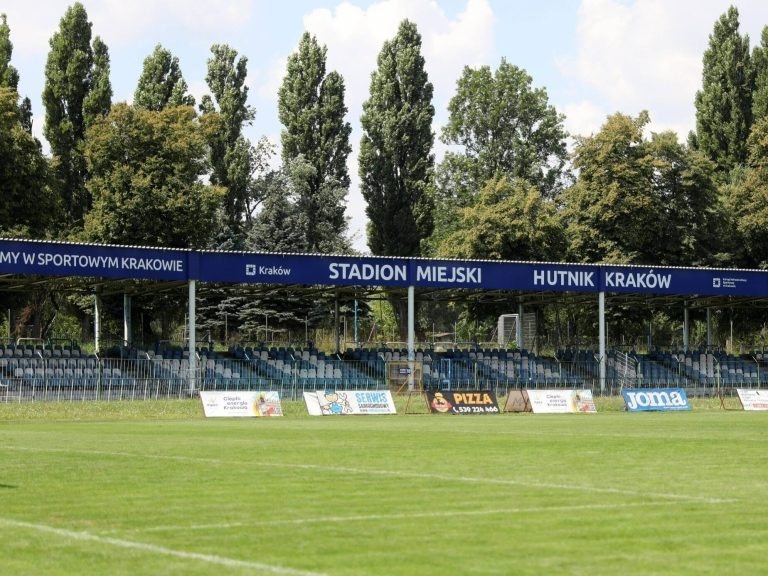Premium clothing, and the seamstress receives PLN 5 per order. A Polish entrepreneur explains the reasons for the prices of clothes made in Poland

I was surprised that sewing companies did not want to sign contracts. Everything is worded. We once came to an agreement on sewing T-shirts, and the sewing company withdrew the order because the boss decided that our order was unprofitable. Besides, a small company is not a partner for negotiations with a sewing company, such cooperation is not profitable – says Andrzej Pabisiak from the “Wilk W Owczaj” company. And he explains why the sports T-shirts he produces cost from PLN 300 and up.
Thanks to the Omnibus directive, which has been in force for several months, sellers no longer tempt customers by “clearing their warehouses”, which boils down to raising prices only to cross out the inflated price the next day and offer the price before the increase, but with the marking that it is a super promotion. Omnibus requires each promotion to show the lowest price from the last 30 days, so customers can distinguish a real promotion from marketing.
And Poles love promotions. In 2021, Marek Maruszak, president of Rossmann Polska, talked in an interview with money.pl about the differences between trade in Poland and Germany. – In Germany, promotions are not as popular as in Poland, less than 15 percent. sales. However, the Polish consumer is looking primarily for opportunities, he said. – We buy over 50% on promotions. goods – he added.
Poles expect promotions in all types of stores. In a December study by UCE Research and the Blix Group, 85.2 percent respondents admitted that they intend to do Christmas shopping mainly on promotions.
Without high margins, there is no promotion
No promotions, no shopping? The challenge was taken up by the owners of the “Wilk W Owczaj” brand and for three years they have been proving that it is possible to run a clothing brand without artificially increasing or lowering prices. And at the same time, they explain how it is possible that a sports T-shirt costs PLN 130 in a chain store, while theirs costs between PLN 300 and 600.
“Wilk W Owczaj” is a small Polish manufacturer of functional clothing based in Krakow. It has been on the market for several years, and as Andrzej Pabisiak admits in an interview with “Wprost”, initially he did not plan to sell clothes, but wanted to produce them for himself and his friends. However, he decided to check whether the cyclists’ T-shirts produced in Poland would find buyers and started a fundraiser to start his business. – We talked about our vision of ethical clothing production, in which we try to care for the environment, people and animals at all stages. Those interested could contribute and in return they received selected products. In this way, we tested whether there was interest in such clothing, he recalls.
The business model adopted by the owners of “Wolf in the Sheep” does not provide for high margins for the manufacturer. It does not increase the price, but it also means that customers cannot count on Black Friday or end-of-season promotions, because there is simply nothing to miss. Clothes manufacturers are reluctant to talk about margins, but considering that producing a blouse for a retail chain in the Global South countries can cost PLN 15 (which includes the purchase of material and remuneration for people involved in the process) and is sold for PLN 120, the margin may be approximately 60%. (in the meantime, there are additional costs – transport to Europe, customs, marketing). In “Wilk” the margin is approximately 30%. and we don’t have to guess, because the owners inform us about it directly. On the website you can find a chart that shows what the cost of producing a T-shirt is.
The most expensive is the material: 30 percent, taxes are 24 percent, sewing is 17 percent.
How much does it cost to sew a T-shirt?
– Customers often do not realize how much it costs to produce something as seemingly simple as a T-shirt. And yet. We sew only from certified merino wool, which is one of the most expensive clothing materials. Farms with the highest standards of sheep welfare and fleece quality are located in New Zealand and this stage of production cannot be transferred to Poland. After shaving, the wool goes to a factory where yarn is produced and to another one where knitwear is made from it. Only then does it flow to us. The costs of production and sewing must include accessories: zippers, threads and marking, i.e. tags or prints – says Pabisiak.
The material itself costs at least PLN 100 (in the case of larger sizes it is more), and the zippers – a dozen or so. Additionally, trimmings, threads, silicone tapes… And so we reach PLN 420 for the cheapest cycling jersey.
Andrzej Pabisiak admits that at the beginning of his business career, he dreamed of processing shaved sheep fleece on his own, so as to outsource as little of the production as possible. – This was the naive thinking of a beginner, because we did not realize how much the machines needed to create yarn and knitwear cost – he recalls.
Paradoxically, obtaining material from the other hemisphere turned out to be easier than finding a sewing company that would fulfill the order.
Premium brands pay seamstresses PLN 5
– We posted an announcement on the largest Facebook group bringing together seamstresses and clothing companies that we want to sew premium sportswear and are looking for a contractor. We have stipulated that we will consider offers from companies that employ under employment contracts. There was a discussion under the post that I didn’t expect: people were ironic that if the clothes were premium, maybe we would pay not PLN 3, but PLN 5 for the sewing of the piece. Seamstresses admitted that even for sewing clothes sold for several hundred zlotys, they receive a few zlotys. We pay more – even PLN 120 per item, especially since sewing some T-shirts takes several hours. You can outsource cheaper, but we don’t want to do that, he adds.
Once they found sewing companies that met expectations in terms of compliance with labor law, another problem arose: these companies did not necessarily want to cooperate with them.
– Initially, we ordered a dozen or so pieces of a given model. Few sewing companies were interested in such a small customer. However, the real shock for me was that they did not want to sign contracts anywhere – neither in small plants nor in large companies. Our material is expensive, it costs up to PLN 200 per linear meter, so any damage is a significant loss for us – he says.
He recalls that he contacted one sewing company, brought the material and arranged the details. However, the owner broke the contract, explaining that she had recalculated everything and that this cooperation was not profitable for her.
– We had customers scheduled, but it turned out that there were no goods. We quickly found a new sewing room, but when we agreed on the date, the owner called to say that he couldn’t do it and would order sewing in a few days. Since there was no contract, there were no contractual penalties that could discipline the sewing companies. I learned then that in this industry no one takes small companies seriously and in fact they should be happy that someone wants to cooperate with them at all – he sums up.
Polish clothing industry “on razor blades”
Just because a company accepted an order, it didn’t mean that its execution met expectations.
– We expected that, for example, even, nice seams would be standard, but this is not true. We showed sample T-shirts in sewing rooms and heard that making something like this requires machines that few people in Poland have. I feel that it is difficult to sew high-quality sportswear in Poland. It happened that someone sewed nicely, but over time, for unknown reasons, the quality deteriorated dramatically – says Pabisiak.
The initial anger gave way to understanding what caused the difficulties in cooperation with sewing companies. Andrzej Pabisiak and his partners realized that not only their brand is facing difficulties, but also the sewing managers have to make decisions every day that will affect their survival. Literally.
– Recent months have been difficult for clothing manufacturers because fall products were not sold during the long summer. This shows how sick this industry is: it shouldn’t be that the problems of a few weeks cause companies to go bankrupt! If it were a healthy business, sewing companies would have a financial cushion, but I have the impression that they operate on razor blades. Loan on loan and it doesn’t take much for this delicate structure to fall apart. The sewing shop where we sewed had regular orders, but it still went out of business. Such a paradox – sums up our interlocutor.
He admits that if he had known at the beginning that it would be so difficult, he might not have entered this business at all. Despite this, the brand works and is slowly developing. Time has shown that there are people willing to buy T-shirts costing several hundred zlotys – this is obviously not a large group, but it is growing thanks to the fact that more and more customers are aware that it is worth buying one more expensive item, but of higher quality, than changing the cheaper one every season. There are also more and more customers for whom not only the price is important, but also the awareness that no slave labor was used in the production process and the use of raw materials was limited. Hence the popularity of products marked with the “Fair Trade” logo and small companies, often family ones, that do not want to go towards mass production, but emphasize fair terms of cooperation with contractors and ethics. And that has to cost.
– Because if something is cheap in a chain store, it means that the cost was borne by someone else – for example, a seamstress in Bangladesh who sacrifices her health by working in unsanitary conditions for a few dollars a day. We try to make our clients aware of this – sums up Pabisiak.






